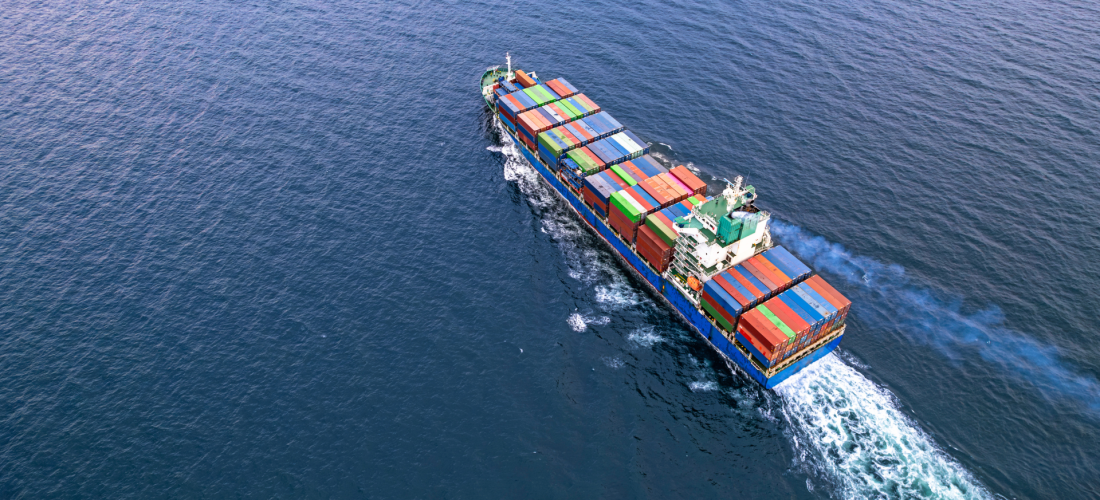- Insurance Solutions
- Products
- Marine Cargo
Marine Cargo
What is Marine Cargo Insurance?
Marine Cargo Insurance provides cover for goods and merchandise while they are in transit, whether by sea, air, road, or rail. It protects businesses against the risk of loss, theft, or damage to goods being transported domestically or internationally.
What are the coverage areas?
This type of insurance is crucial for importers, exporters, manufacturers and any businesses involved in the distribution of physical products. Marine Cargo Insurance is designed to offer peace of mind, ensuring that your goods are protected from a wide range of potential risks, from natural disasters at sea to accidents, theft and damage during transit.
- Coverage for total or partial loss of goods while they are being transported. This can include loss due to theft, mishandling, sinking of a vessel, or disappearance during transit.
- For example, if a container of goods is lost overboard during a storm, Marine Cargo Insurance will cover the financial loss.
- Protection for goods that are damaged in transit due to a variety of risks, such as rough seas, poor handling, accidents, or exposure to the elements.
- For instance, if goods are water-damaged due to a leaking container or packaging failure, the policy would cover the repair or replacement costs.
- Cover for goods that are stolen during transit, either from the ship, vehicle, or warehouse. This also includes risks like piracy at sea, which, although rare, can result in substantial losses for businesses shipping high-value goods.
- If goods are stolen from a port or during transit by truck, the policy provides compensation for the lost value.
- In maritime law, if a shipowner sacrifices part of the cargo to save the vessel (e.g., in a storm), the loss is shared among all parties with goods on the vessel. Marine Cargo Insurance covers your business’s contribution to this shared loss, known as “General Average.”
- If part of a cargo is jettisoned to prevent the sinking of a ship, this cover ensures you don’t have to pay for the lost goods out-of-pocket.
- Compensation for financial losses resulting from delays caused by insured risks (such as damage or accidents) that prevent the timely delivery of goods.
- If a delay results in goods becoming unsellable or losing value (e.g., perishable goods), some policies may provide compensation for the loss in value.
- Coverage for damage that occurs during the loading or unloading of goods. Accidents while loading goods onto a ship, truck, or plane can cause significant damage, which is covered under this policy.
- If a forklift accident occurs while loading goods onto a ship, causing damage to the items, Marine Cargo Insurance will compensate for the repair or replacement.
- In case of loss or damage to goods, the policy may also cover any customs duties or import/export taxes that have already been paid for those goods.
- If goods are lost at sea, and you’ve already paid customs duties, this cover ensures you’re reimbursed for those costs.
Insurance With A Purpose
Key types:
Voyage Policy: A Voyage Policy covers a single journey of goods from one location to another, making it ideal for businesses that only occasionally ship goods. It provides protection for the duration of that specific voyage, ensuring that goods are covered from the point of departure to their final destination.
Open or Annual Policy: An Open Policy (also known as a Floating Policy) is suited for businesses that ship goods regularly throughout the year. It offers ongoing cover for multiple shipments over a specified period, usually 12 months, and automatically protects each consignment without the need to arrange individual cover for every journey.
All-Risk Policy: An All-Risk Policy offers the broadest form of coverage, protecting goods against most forms of accidental loss or damage, with minimal exclusions. This type of policy ensures that businesses are covered for nearly any potential risk, except those specifically excluded by the policy.
Total Loss Only (TLO) Policy: A TLO Policy provides cover only in the event of total loss of goods, such as when a ship sinks or cargo is completely destroyed. This is a more limited form of cover, usually at a lower premium, and is suitable for businesses that want to insure against catastrophic losses.
Benefits:
Comprehensive Risk Protection: Marine Cargo Insurance ensures that your goods are protected from a wide variety of risks during transportation, including natural disasters, accidents, theft, and damage, helping your business avoid costly financial losses.
Global Coverage: Marine Cargo Insurance provides cover for both domestic and international shipments, allowing businesses to operate confidently in global trade. Whether goods are being shipped across the UK or overseas, your cargo is protected.
Tailored Policies: Policies can be customised to suit the specific needs of your business, whether you’re shipping high-value items, perishable goods, or specialised equipment. Marine Cargo Insurance can be tailored based on the type of goods, shipping method, and destination.
Business Continuity: By protecting your goods in transit, Marine Cargo Insurance helps maintain business continuity. Even if goods are lost or damaged, the insurance ensures that your business can recover financially and continue operating without major disruptions.
Minimises Trade Risks: For importers and exporters, Marine Cargo Insurance minimises the inherent risks associated with global trade. It ensures that goods reach their destination safely, or that you’re compensated in the event of loss or damage.

Key Considerations:
Exclusions: Marine Cargo Insurance policies typically exclude certain risks, such as damage due to inadequate packaging, wilful misconduct, or delays unrelated to insured perils. It’s important to review your policy exclusions carefully to ensure all your risks are adequately covered.
Valuation of Goods: Ensure that the value of your goods is accurately declared when purchasing cover. Under-insuring your goods may result in lower payouts in the event of a claim, while over-insuring could lead to higher premiums than necessary.
Responsibility for Cover: In international trade, it’s important to determine who is responsible for insuring the goods. Depending on the terms of sale (Incoterms), either the buyer or the seller may be responsible for arranging Marine Cargo Insurance. Ensure this is clearly defined in any contracts.
Transit Duration and Route: The duration and route of the transit can affect the risks associated with shipping goods. Longer voyages, high-risk regions (e.g., piracy hotspots), or adverse weather conditions can increase the likelihood of claims, so make sure your policy provides sufficient cover for these factors.
Claims Process: Familiarise yourself with the claims process, including documentation requirements and time limits for reporting losses. Timely and accurate reporting of any incidents is essential for a smooth claims process.
Choosing a Marine Cargo Insurance Provider:
Industry Expertise: Choose an insurer with a strong understanding of international shipping and the specific risks associated with your goods and routes.
Claims Handling Reputation: A provider with a proven track record of quick and fair claims resolution will be essential in minimising disruption to your business.
Customisation Options: Select a policy that allows you to tailor coverage to your specific cargo, shipping methods, and destinations to ensure comprehensive protection.
Speak to our Marine Cargo
Expert Advisor
We understand the importance of having easy and accessible ways to get in touch with us. That’s why we’re excited to offer you a way to connect directly with our Senior Team quickly and conveniently.

Nicola Wyatt
Senior Insurance Practitioner

Nicola Wyatt
Senior Insurance Practitioner
- Phone:01672 592069
- Email:[email protected]







